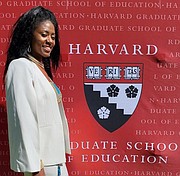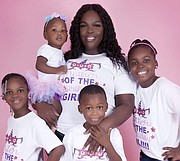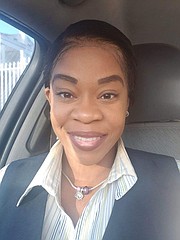By LEANDRA ROLLE and JADE RUSSELL
Tribune Staff Reporters
WHEN April Finlayson’s fifth application for Bahamian citizenship went nowhere, the Harvard-educated neuroscientist left The Bahamas “in grief and despair” to establish a life in the United States.
Hours after the Privy Council ruled yesterday that people like her are Bahamian citizens at birth, the 37-year-old recalled the years she spent “on the periphery” in the Bahamas, shedding light on the marginalisation many like her have felt waiting for citizenship.
“I just gave up on the thought of ever being Bahamian, and I just decided to invest in a future somewhere else,” said Ms Finlyason, the daughter of a Bahamian man and an American woman.
In many ways, Ms Finlayson would be the ideal type of citizen —productive, driven and committed to human development.
But even when she established the Leadership Academy school in 2009, she felt excluded from the privileges of being a Bahamian.
She moved to the United States five years ago, obtained a Master’s degree at Harvard University and is on track to get a PhD from that institution.
“What’s so interesting about today,” she said, “is that today was the final submission for my doctorate. Then today was the day of the ruling, and I can’t help, but think of the serendipity that’s involved with that.”
Ms Finlayson is unsure whether she will return to live in The Bahamas. She said the landmark Privy Council ruling filled her with mixed emotions: joy about the outcome, but bittersweetness over what so many have and continue to endure.
Meanwhile, 28-year-old Junisha Jean Pierre said the Privy Council’s ruling sparked only elation in her.
The mother-of-four does not have legal status in The Bahamas but is delighted to know her children won’t suffer the fate she has endured trying to get Bahamian citizenship.
“They don’t have to wait until they are 18 to go out and apply for citizenship,” she said. “They could probably be able to get scholarships and go to the (University of The Bahamas) without being charged double, so they will have better advantages than me, and that is what I’m really thankful for.”
When children lack status, activities most parents take for granted can be challenging, as Ms Jean-Pierre discovered when trying to enrol her first child in school.
“I couldn’t do it,” she said. “I had to let my mom do that because she had a Bahamian passport and my other kids, because the government was doing a pre-school grant and because of my status, they were denied, which I don’t feel is fair because all of my kids are under their father’s names and I was born here.”
With the new ruling, Ms Jean Pierre expects her children’s travelling woes will soon be a thing of the past.
“(My daughter’s dad) is not from (New Providence) and her and her sister can’t really go on the island to travel to him because they don’t have no passport or photo ID to go on the plane,” she said.
One person who knows what it is like waiting for citizenship when born to a Bahamian father and a non-Bahamian mother is 45-year-old Domonica Thompson.
She said she got citizenship ten years after applying for the status— a fate her grandson, whose father is Bahamian but whose mother is not, will avoid.
“He was born in The Bahamas but he’s taken on the citizenship of his mother who’s currently going through the process (to get citizenship),” she said.
“(The ruling is) going to alleviate a lot of stress on foreigners whose kids are born here living in limbo. I think that it’s going to make it easier for a lot of parents who have children that were born in The Bahamas to now be able to claim what is rightfully theirs.”






Comments
Use the comment form below to begin a discussion about this content.
Commenting has been disabled for this item.